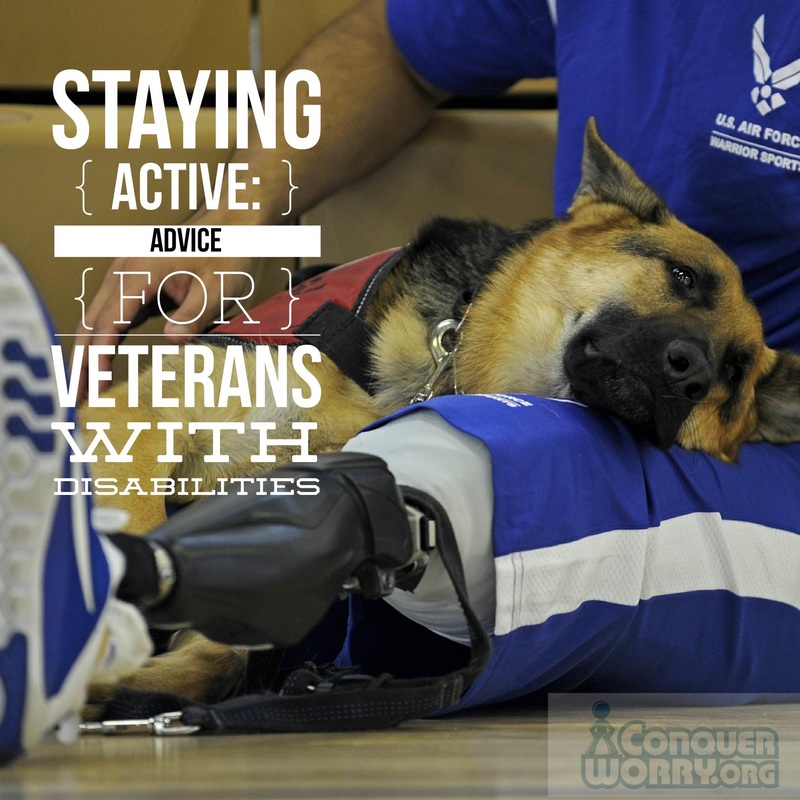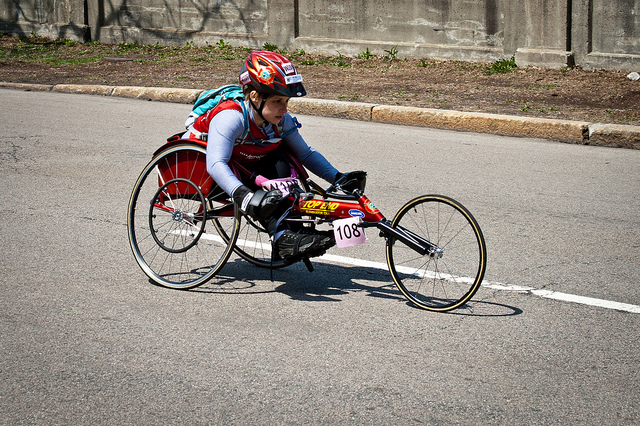|
Article by Steve Johnson Edit and Post Design by Christy Zigweid Photo by skeeze via Pixabay made using @WordSwagApp We all know the importance of physical exercise. It has the power to heal the body, clear the mind, and keep our waistlines in check. While regular exercise should be a top priority for everyone, it’s especially important for people with disabilities to stick to a moderate exercise regimen. Here are a few tips to help you ensure getting plenty of exercise stays a part of your daily routine. Create a Plan and Set Your GoalsThink about what kind of exercise would work for you, what kind of results you want, and your overall goals for your physical health. Consider whether you want to work out at home or whether group exercise will be more motivating for you. Write it all down and use it to help create your exercise plan. There are plenty of resources online for people with disabilities looking to create an active lifestyle. There’s also adapted versions of popular exercise activities that may be more suitable for people with limited physical ability, like chair yoga, aquatic exercise, and adaptive Alpine skiing. Remember, your exercise plan doesn’t need to be intense or complicated–as long as you commit to doing it regularly you’ll see benefits. Consider Alternative TherapiesMany alternative therapies will help you heal while also getting exercise. For example, aquatic therapy has been shown to improve muscle strength, flexibility, and balance while helping to decrease pain. Another option is to get a therapy dog. Therapy dogs can help reduce symptoms of depression and PTSD while encouraging physical exercise through dog walks and play. Work with Professionals If you’d like some help creating or implementing your exercise plan, consider getting advice and encouragement from a health care professional like a doctor or physical therapist. There are also personal trainers who specialize in fitness for people disabilities. All 3 types of professionals should be able to help you figure out what you’re capable of and what activities you’ll enjoy. Keep in mind that–depending on your disability–you might need to seek clearance from your doctor before starting a new exercise regimen. Photo by Andrew Malone via Flickr Listen to Your BodyWhether you work with others or go it alone, always remember to listen to your body. Tune in to any physical sensations you have during exercise and know when to take a break. Remember–you should feel like you are putting your body to work, but you shouldn’t be feeling pain. If you find yourself in pain during exercise, stop immediately and consult with your doctor before continuing. If you’re experiencing chronic pain, it may be more rest that you need rather than more intense activity. Work with your physician to find the right balance. Sticking to an exercise routine can have its ups and downs, but once you start, the physical and mental health benefits you see will make it well worth it. ABOUT THE AUTHOR Steve Johnson has always been dedicated to promoting health and wellness in all aspects of life. Studying in the medical field has shown him how important it is for reputable health-related facts, figures, tips, and other guidance to be readily available to the public. He created PublicHealthLibrary.org with a fellow student to act as a resource for people’s overall health inquiries and as an accurate and extensive source of health information. When he isn’t hard at work in his studies, Steve enjoys playing tennis and listening to his vintage record collection.
0 Comments
Leave a Reply. |
Build Your Action Based Stress Reduction System
Popular PodcastsOlympian Suzy Favor Hamilton - From Fame to Prostitution to Advocacy
Hall of Fame Basketball Star Chamique Holdsclaw on Mental Resilience Diana Nightingale on her husband Earl Nightingale's Principles for Mental Health Success JoAnn Buttaro on Date Rape & PTSD Survival Story: Its Never Too Late Gabe Howard on BiPolar Advocacy Phil Fulmer on Teen Suicide Prison, Bipolar and Mania with Andy Behrman Columbia Univeristy's Dr. Rynn on OCD Archives
March 2018
Categories
All
|




 RSS Feed
RSS Feed





